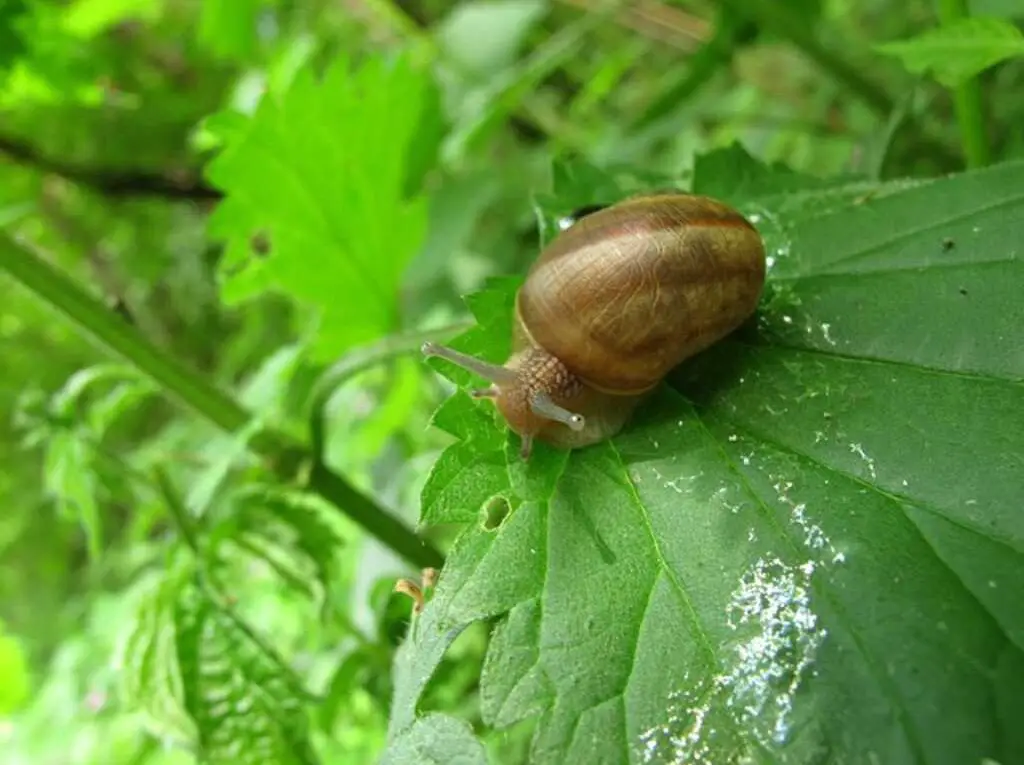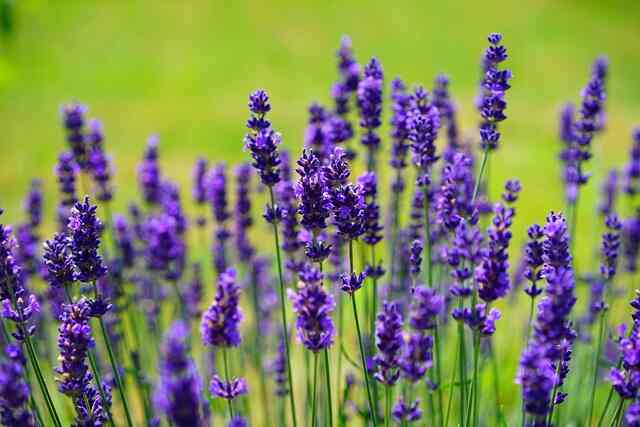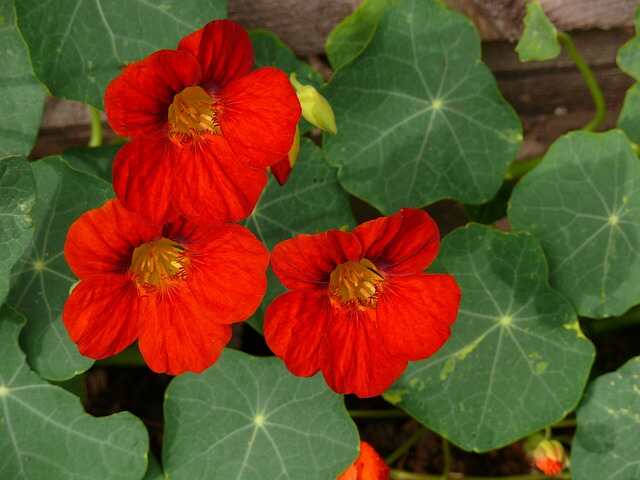22 Plants that are Natural Pesticides: The Ultimate Guide
Welcome, green thumbs and pesticide haters! I’m so excited to share with you some of my favorite natural pesticide options. As someone who’s been gardening for years, I know firsthand how frustrating it can be to deal with pests.
But fear not, my friends! There are plenty of plants out there that can help you fight back against those pesky bugs without resorting to synthetic chemicals.
Table of Contents
Why Natural Pesticides Are the Way to Go
Let’s start by talking about why natural pesticides are so much better than their synthetic counterparts. For one thing, they’re much safer for you, your family, and your pets. Synthetic pesticides are full of chemicals that can be harmful if ingested or inhaled. And if you’ve got little ones running around, that’s a major concern.
But it’s not just about safety – natural pesticides are also better for the environment. Synthetic pesticides can be incredibly harmful to pollinators like bees and butterflies, not to mention the other wildlife in your garden. And when those chemicals seep into the soil or run off into nearby water sources, they can cause even more damage.
Plants that are Natural Pesticides
So, without further ado, let’s dive into my top picks for natural pesticides! These plants are all great options for keeping pests at bay and maintaining a healthy garden ecosystem.
Basil
Basil is a popular herb with natural pest-repellent properties. Its strong aroma can deter insects like mosquitoes and flies, and it can even repel spider mites and aphids when planted near other plants. To use basil as a pest control option, you can either plant it in your garden or crush its leaves and sprinkle them around your plants. However, be careful not to use too much, as excessive use can harm beneficial insects like bees and ladybugs.
| Precautions for Using Basil as a Natural Pesticide |
|---|
| – Keep basil plants away from pets |
| – Avoid getting basil in your eyes or mouth |
| – Always wash your hands after handling basil |
Catnip
Catnip is a natural pesticide that’s great for repelling insects like aphids, squash bugs, and ants. It contains a compound called nepetalactone that bugs find repulsive. To use catnip for pest control, you can make a tea by steeping 1 cup of fresh catnip leaves in 2 cups of water for 30 minutes. Strain the mixture and apply it to your plants using a spray bottle. Be careful not to get the solution on the soil or flowers, as it may harm beneficial insects.
| Plant | Catnip |
|---|---|
| Pest Control | Repels aphids, squash bugs, and ants |
| Usage | Make a tea by steeping leaves in water for 30 mins, strain, and spray on plants |
| Precautions | Avoid spraying on soil or flowers, as it may harm beneficial insects |
Chrysanthemums
Chrysanthemums are another excellent natural pesticide option. They contain a chemical called pyrethrin, which is toxic to many types of insects. You can make a simple chrysanthemum tea by boiling the flowers in water, then straining the mixture and spraying it on your plants. Just be careful not to get the spray on beneficial insects like bees and ladybugs. Here’s a quick table outlining the pros and cons of using chrysanthemums as a pesticide:
| Pros | Cons |
|---|---|
| Effective against many types of insects | Toxic to beneficial insects |
| Easy to make at home | Can cause skin irritation |
| Biodegradable and non-persistent | May not be as effective against heavy infestations |
Citronella
Citronella is a popular plant for natural pest control. It contains citronellal, which repels insects like mosquitoes and flies. To use citronella, crush the leaves and rub them on your skin, or burn them as candles or incense. However, be cautious not to use too much citronella oil, as it can irritate the skin and eyes. Here’s a small table of precautions to take:
| Precautions for Using Citronella |
|---|
| Do not ingest |
| Avoid applying near eyes or open wounds |
| Do a patch test before use |
| Use in moderation |
| Keep away from children and pets |
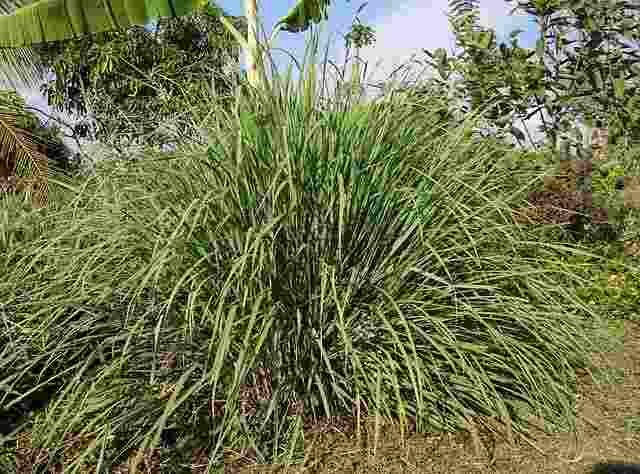
Dill
Dill is a great natural pesticide that can help keep pests away from your garden. Its strong scent repels many insects, including aphids and spider mites. To use dill as a pesticide, you can either plant it in your garden or make a spray by steeping dill in water overnight. However, be aware that dill can also attract some beneficial insects, like ladybugs and lacewings. Use it sparingly and monitor your garden carefully to avoid disrupting the balance of your ecosystem.
| Pros | Cons |
|---|---|
| Effective against many pests | May attract beneficial insects |
| Easy to grow | Can spread easily |
| Safe for humans and pets | Can be toxic to some plants in large amounts |
Eucalyptus
Eucalyptus is another natural pesticide option that’s both effective and easy to use. The essential oil derived from the eucalyptus tree contains compounds that repel insects like mosquitoes, ticks, and fleas. To use eucalyptus oil as a pesticide, simply mix a few drops with water and spray it on your plants or around your home. However, it’s important to note that eucalyptus oil can be toxic if ingested, so be sure to keep it away from children and pets.
Here’s a small table summarizing the main points:
| Pros | Cons | Precautions |
|---|---|---|
| Effective natural pesticide | Toxic if ingested or applied improperly | Keep away from children and pets |
| Easy to use and readily available | May cause skin irritation or allergic reactions | Wear gloves and protective clothing when handling or applying |
| Repels a variety of insects, including mosquitoes, ticks, and fleas | Can be expensive depending on the quality and quantity purchased | Store eucalyptus oil in a cool, dark place away from heat and light |
| Can also be used as a natural deodorizer and cleaning agent | Strong odor may be unpleasant to some | Test a small area before applying to plants or surfaces to check for adverse reactions |
Fennel
Fennel is a versatile plant that’s not only delicious in the kitchen, but also great for pest control in the garden. Its scent repels slugs, snails, and other pests. To use fennel as a natural pesticide, simply plant it in between your other crops or create a spray by steeping fennel leaves in water. However, be cautious when using fennel as it can attract beneficial insects like ladybugs and lacewings that may also be targeted by the pests.
Here’s a small table summarizing the pros and cons of using fennel as a natural pesticide:
| Pros | Cons |
|---|---|
| Effective at repelling slugs, snails, and other pests | May attract beneficial insects like ladybugs and lacewings that can also be targeted by pests |
| Safe for humans and pets | May require regular maintenance to keep pests at bay |
| Easy to grow and care for | Can have a strong scent that may not be appealing to everyone |
| Can be used fresh or dried for pest control | Some people may have an allergic reaction to fennel |
Garlic
Garlic is a natural pesticide that repels insects like aphids, mosquitoes, and cabbage worms. You can use garlic to control pests by planting it around the perimeter of your garden or by making a garlic-infused solution to spray onto your plants. However, it’s important to be careful when using garlic as a pesticide, as it can also harm beneficial insects like bees and butterflies. Here’s a small table with some key information about using garlic as a natural pesticide:
| Type of Pest | Garlic Method | Precautions |
|---|---|---|
| Aphids | Garlic-infused spray | Spray early in the morning or late in the evening to avoid harming bees. |
| Mosquitoes | Garlic plants | Plant around the edges of your garden or near outdoor seating areas. |
| Cabbage worms | Garlic plants or garlic spray | Use sparingly and avoid spraying directly onto flowers or other plants that attract pollinators. |
Lavender
Lavender is not just a fragrant and beautiful plant, it’s also an effective natural pesticide. Its strong scent repels many types of insects, including moths, fleas, and mosquitoes. To use lavender as a pesticide, you can make a spray by steeping the flowers in hot water and adding a small amount of dish soap. However, be careful not to use too much lavender oil or spray it directly on your plants, as it can harm beneficial insects like bees and ladybugs.
Here’s a quick table with some key information about using lavender as a natural pesticide:
| Plant | Lavender |
|---|---|
| Type of pest | Moths, fleas, mosquitoes |
| How to use | Make a spray by steeping flowers in hot water and adding a small amount of dish soap |
| Precautions | Don’t use too much lavender oil, as it can harm beneficial insects. Don’t spray directly on plants. |
Lemongrass
Lemongrass is a versatile natural pesticide that’s effective against a wide range of pests, including mosquitoes, ticks, and fleas. To use lemongrass for pest control, you can crush the leaves and stems and apply them to your skin or clothing, or burn lemongrass oil in a diffuser or candle. However, it’s important to be cautious when using lemongrass, as it can be irritating to some people’s skin. Here’s a table with more information on using lemongrass for pest control:
| Type of Pest | How to Use Lemongrass | Precautions |
|---|---|---|
| Mosquitoes | Apply crushed leaves or stems to skin or clothing, or use lemongrass oil in a diffuser or candle. | Test for skin sensitivity before use, as lemongrass can cause irritation in some people. |
| Ticks | Apply crushed leaves or stems to skin or clothing. | Avoid contact with eyes and mouth, as lemongrass can be irritating. |
| Fleas | Use lemongrass oil in a diffuser or spray diluted oil onto pet’s bedding. | Do not apply directly to pets’ skin, and keep pets away from undiluted oil as it can be toxic if ingested. |
Marigolds
Marigolds are not only beautiful flowers, but also great for natural pest control. They release a chemical called alpha-terthienyl, which repels a wide variety of insects including aphids, mosquitoes, roaches, thrips, whiteflies, and tomato hornworms and even rabbits. Planting marigolds around the edges of your garden or interspersed with your other plants can help keep pests at bay. However, take precautions to not plant marigolds too close to plants like beans and cabbage, as they can inhibit their growth.
Here’s a small table with some additional information on using marigolds for pest control:
| Pros | Cons |
|---|---|
| Natural pest control | Can inhibit the growth of certain plants |
| Easy to grow | Not effective against all pests |
| Bright and cheerful | May attract some pests like spider mites |
Remember to always do your research and take precautions when using any pesticide, even natural ones.
Mint
Mint is a great natural pesticide that can help keep your garden pest-free. Its strong scent repels a wide variety of insects, including ants, aphids, and fleas. To use mint for pest control, simply crush a handful of fresh mint leaves and sprinkle them around the perimeter of your garden or near the affected plants. Be sure to take precautions, though – mint can be invasive and may take over your garden if not contained. Here’s a small info full table to summarize:
| Plant | Mint |
|---|---|
| Type | Herb |
| Uses | Repels insects such as ants, aphids, and fleas |
| Precautions | Can be invasive and take over your garden if not contained |
Nasturtium
Nasturtium is a plant that can be used to repel pests like aphids, whiteflies, and squash bugs. Its pungent scent and spicy flavor are unappealing to many insects, making it a great natural pesticide option. To use nasturtium for pest control, plant it around the edges of your garden or in between other plants. However, it’s important to note that nasturtium can also attract cabbage moths, so it may not be the best choice for gardens that are susceptible to them.
| Pros | Cons |
|---|---|
| Repels a variety of pests | Can attract cabbage moths |
| Edible flowers and leaves | Can spread quickly and become invasive |
| Easy to grow and low-maintenance | Can be toxic to some animals if ingested in large quantities |
Neem
Neem is a natural pesticide derived from the neem tree. It contains compounds that disrupt the life cycle of insects, making it an effective way to control pests like whiteflies, mites, and scale insects. To use neem, mix neem oil with water and spray it onto your plants. It’s important to note that neem can also harm beneficial insects like bees, so it’s best to use it sparingly and only when necessary.
Here’s a small info full table with some key points about neem:
| Neem |
|---|
| Derived from the neem tree |
| Effective against whiteflies, mites, and scale insects |
| Disrupts the life cycle of insects |
| Mix neem oil with water and spray onto plants |
| Use sparingly and only when necessary |
| Can harm beneficial insects like bees |
Petunias
Petunias are not just pretty flowers – they can also be used as a natural pesticide. These colorful blooms contain a substance called solanine, which repels aphids, tomato hornworms, and other pests. To use petunias as a pesticide, simply plant them in and around your garden. However, keep in mind that petunias can be toxic to pets and humans if ingested. Here’s a quick table with some key info:
| Plant name | Petunia |
|---|---|
| Type of pest controlled | Aphids, tomato hornworms, and other pests |
| How to use | Plant in and around your garden |
| Precautions | Can be toxic if ingested by pets and humans |
Rosemary
Rosemary is a great natural pesticide that repels a variety of pests including mosquitoes, flies, and cabbage moths. To use it as a pesticide, simply crush fresh rosemary leaves and sprinkle them around your garden. You can also make a rosemary-infused spray by boiling rosemary in water and letting it cool. However, be cautious not to overuse it, as it may also repel beneficial insects.
Precautions:
- Do not use on plants that are in the mint family
- Do not use on pets or near water sources
| Pros | Cons |
|---|---|
| Effective against mosquitoes, flies, and cabbage moths | May repel beneficial insects |
| Easy to use | Overuse may harm plants |
| Natural and non-toxic | Not recommended for use on plants in the mint family |
Sage
Sage is a great natural pesticide for repelling pests like moths, beetles, and flies. It has a strong, earthy scent that insects can’t stand. To use sage, you can make a sachet with dried leaves and place it in areas where pests tend to gather, like in your pantry or closet. You can also burn sage as incense to repel insects. However, be cautious when using sage around pets, as it can be toxic to some animals.
| Precautions to Take When Using Sage |
|---|
| Do not use around pets |
| Do not consume internally |
| Avoid contact with eyes and skin |
| Use in well-ventilated areas |
| Do not use in excessive amounts |
Sunflowers
Sunflowers are not just beautiful to look at, but they can also be used as a natural pesticide. The sunflower’s root system secretes a toxin that is effective against soil-borne pests like nematodes. To use sunflowers as a natural pesticide, you can plant them in areas where you have problems with soil-borne pests. However, it’s important to note that sunflowers can also attract certain pests like aphids and caterpillars, so it’s best to monitor your garden carefully. Here’s a small table summarizing the benefits and precautions of using sunflowers for pest control:
| Benefit | Precaution |
|---|---|
| Effective against soil-borne pests | May attract other pests |
| Beautiful addition to any garden | Monitor garden carefully |
| Easy to grow |
Remember to always do your research and take precautions when using any natural pesticide in your garden.
Tansy
Tansy is a flowering plant that is known for its natural pesticide properties. Its leaves and flowers contain a compound called thujone, which is toxic to many pests, including ants, flies, and moths. To use tansy as a pesticide, you can plant it around the edges of your garden or crush the leaves and spread them on affected plants. However, it’s important to note that tansy can be toxic to humans and pets, so be sure to take precautions like wearing gloves and washing your hands after handling it.
| Precautions |
|---|
| Wear gloves when handling |
| Wash hands after handling |
| Do not ingest |
| Keep away from children and pets |
Thyme
Thyme is a popular herb that’s not just great for cooking, but also for pest control. Thyme contains compounds that repel a wide range of insects, including ants, mosquitoes, and cabbage worms. To use thyme as a natural pesticide, you can make a spray by steeping a handful of fresh thyme leaves in water overnight. However, be careful not to spray directly on plants in full sun as it may cause damage. Here’s a small table with precautions to take:
| Precautions for using thyme as a natural pesticide |
|---|
| – Avoid spraying in full sun to prevent damage |
| – Test on a small area before using on all plants |
| – Wear gloves when handling the spray |
Yarrow
Yarrow is a versatile and effective natural pesticide that repels a wide variety of pests, including aphids, flea beetles, and spider mites. To use yarrow for pest control, you can either plant it around the edges of your garden or make a yarrow tea to spray on your plants. However, it’s important to note that yarrow can be toxic to cats and dogs, so take precautions to keep your pets away from the plant.
| Plant name | Yarrow |
|---|---|
| Effective against | Aphids, flea beetles, spider mites |
| How to use | Plant around garden or make yarrow tea to spray on plants |
| Precautions | Toxic to cats and dogs, keep away from pets |
Real-World Examples of Successful Natural Pest Control
First up, let’s talk about some real-world examples of people who have successfully used natural pesticides. Take my friend Jane, for instance. She’s been gardening for years and always struggled with aphids on her tomato plants. But once she started using garlic spray, she saw a drastic reduction in aphid infestations. Now, her tomato plants are thriving!
Another example is my neighbor Mike, who used to have a serious problem with cabbage worms in his garden. But after planting marigolds around the edges of his garden, he noticed a significant decrease in the number of cabbage worms. And the best part? The marigolds added a beautiful pop of color to his garden, too.
Conclusion
Using natural pesticides is an excellent way to control pests in your garden without harming the environment or your health. By incorporating plants like lavender, neem, and marigolds, you can create a garden that is beautiful, fragrant, and pest-free. Additionally, natural pesticides are easy to make and use, making them an affordable and sustainable alternative to chemical pesticides.
Remember, not all pests are bad for your garden, and it is essential to maintain a balance between good and bad insects. However, when pests become too numerous, natural pesticides can help keep them at bay without harming the beneficial insects in your garden.
So, why not give natural pesticides a try? With a little bit of patience and some creativity, you can create a garden that is both beautiful and healthy.
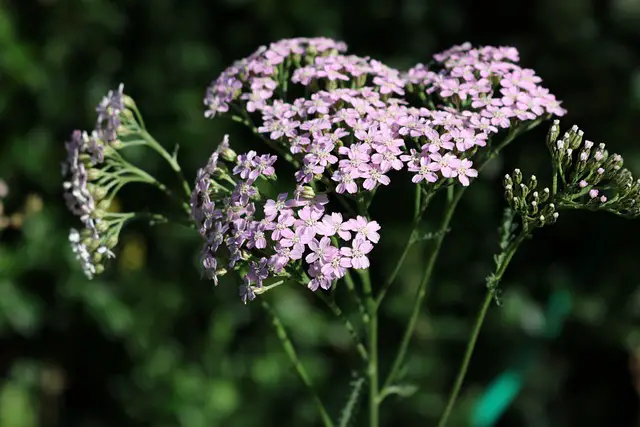
Frequently Asked Questions
Are natural pesticides effective?
Natural pesticides are eco-friendly, effective against pests, and safer than synthetic chemicals. They are derived from natural sources such as plants and minerals and can target specific pests.
Although not always a complete solution, when combined with other pest management techniques like cultural practices, they offer a viable alternative for controlling garden pests.
Are natural pesticides safe for humans and pets?
The safety of natural plant pesticides for humans and pets depends on the specific type of pesticide, as well as the dose and duration of exposure. It’s important to consider the context of use, such as whether the pesticide is being used indoors or outdoors.
Additionally, it’s important to understand the potential risks and benefits of using natural plant pesticides, and to take appropriate precautions to minimize the risk of harm to humans and pets.
Can I make my own natural pesticides at home?
Yes, you can make your own natural pesticides at home using common household ingredients. One recipe is to mix one tablespoon of garlic powder, one tablespoon of cayenne pepper, and one tablespoon of dish soap in a quart of water.
Let it sit for an hour, strain the mixture, then spray and apply it on your plants. Alternatively, mix one part vinegar with three parts water and a few drops of dish soap in a spray bottle. Peppermint oil can also be used as a natural pesticide by mixing it with water and dish soap in a spray bottle.
Can natural pesticides be harmful to the environment?
Yes, natural plant pesticides have the potential to be harmful to the environment. Depending on their chemical composition and how they are used, they can negatively impact non-target organisms, including beneficial insects and wildlife, and potentially contaminate soil and water.
It is important to carefully evaluate the risks and benefits of using natural plant pesticides and to follow proper application techniques to minimize potential environmental impacts.
Related Post:

